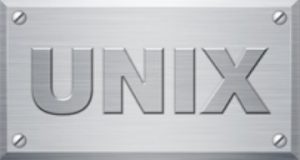Here’s What’s Coming in The Next Version of macOS
June’s WWDC is not far away, so it’s not too early to start talking about what Apple may have in store for the next version of macOS.

macOS High Sierra. What’s next?
There are two recent articles that help get this kind of discussion going.
- Apple Has Plans for Unified Mac, iPhone, and iPad Apps.
- PSA: All Apps Submitted to Mac App Store Must be 64-bit Starting January 31.
These two articles suggest that Apple is paving the way forward for a better technological positioning. We’ve seen this many times before. Apple tells developers about what they need to be cognizant of and provides warnings and deprecations. Then, at some time in the future, with the architectural pieces in place, a new foundation and capability springs forth. Will we see it coming? It’s always delightful when it does.
64-bit apps
iOS has led the way. 32-bit apps will not launch in iOS 11. Now Apple is starting the process of getting developers over to all 64-bit apps for macOS and has said that 32-bit macOS apps will no longer launch in the version of macOS to be released in 2019.
Once iOS and macOS are using the same set of (more secure) 64-bit APIs, something very cool can start to happen. Developers can build one basic version of their app, and it will detect where it’s running and behave accordingly. This will breathe new life into apps on both OSes because, today, when developers must make a choice, it often means neglecting one platform or the other.
Article of the Week
Aware of all this, Karen Haslam at Macworld UK has pulled together a nice article that covers the issues related to the next version of macOS 10.14.
What will it be called? Will the awkward numbering scheme (10.14) be brought into sync with iOS? What are the implications of Apple’s secret project called ‘Marzipan’? Will there be a new iTunes that’s common across both platforms? Which Macs will suppott macOS 10.14?
And here’s my own final thought. Once developers can “write once” and deploy anywhere, what new latitude will Apple have in designing its hardware line? Will iPads and Macs blur into a continuous spectrum of devices, with some overarching new name, from simple iPad-like devices to monster workstations, all running the same apps, but depend on the human interface desired?
Clearly something amazing is brewing at Apple. We’ll likely have a much clearer picture in June at Apple’s WWDC developer conference. I can’t wait.
Next Page: The News Debris For The Week of January 29th. Fighting in the OS trenches.
Page 2 – News Debris For The Week of January 29th
Fighting in the OS Trenches
• When Apple announced that it was yanking many enterprise-related features from macOS Server, our John Kheit went ballistic. “Apple Seemingly Kills macOS Server, Deprecates Many Essential Services.” A great read.
This week I ran across another splendid article by, who else, Dan Moren that puts more meat on the bones of this topic. “macOS Server: As features are cut, what does the future hold for Apple’s server software?”

The luster slowly tarnished.
Author Moren goes into the history of macOS Server, his personal experience with it, Apple’s thinking, and what the future holds. In my mind, it’s certainly sad to see Apple take this direction, but not because of waning enterprise support.
Rather, if you’re going to be a player in the major OS market, you have to fight hard in the trenches and learn. Every time macOS Server is deployed, Apple has to be prepared to work at a very high level in UNIX technologies and security. That experience, in turn informs Apple about consumer OS issues.
Withdrawing from enteprise support may look sensible for a consumer-oriented company, but it’s like an aerospace company pulling back from combat aircraft and claiming that it can still build superior, high performance business jets.
A company has to walk the walk of the highest levels of stress and performance to work with excellence at lower levels. Otherwise it quickly gets in over its technical head.
• Deciding, as a corporation, when to get into a new market depends on several things. Is the infrastructure, including satisfactory security, in place? Is the customer psychology primed? Do applicable laws intended to protect certain interests get in the way? Do the industry players see an ROI in the proposed solution?
This article at CNBC addresses those issues. “Why Apple will succeed where other tech giants have failed: Helping people track their health info.”
• You have to own an iPhone with iOS 11 to operate a HomePod. Is this a problem? You can’t use Siri to search your ripped library in iTunes. Is this a problem? Is it too closed? Michael Simon at Macworld takes sober look at how Apple has designed the HomePod. “HomePod’s biggest problem isn’t Siri, it’s that it’s too much like the original iPod.” What do you think? Tell me if you’re buying one.

iPhone X: The Next Generation.
• Finally, the iPhone X is a spectacular smartphone. Customers have been eager to acquire one even as others, with a sour grapes mentality, focused on its cost and (faux) downsides. Here’s a nice article at The Verge that sums up the feelings, pro and con, about the iPhone X and highlights the key issue. Good old-fashioned customer satisfaction. “The iPhone X is Apple’s underrated masterpiece.”
Particle Debris is a generally a mix of John Martellaro’s observations and opinions about a standout event or article of the week (preamble on page one) followed on page two by a discussion of articles that didn’t make the TMO headlines, the technical news debris. The column is published most every Friday except for holiday weeks.
0 Response to "Here’s What’s Coming in The Next Version of macOS"
Post a Comment